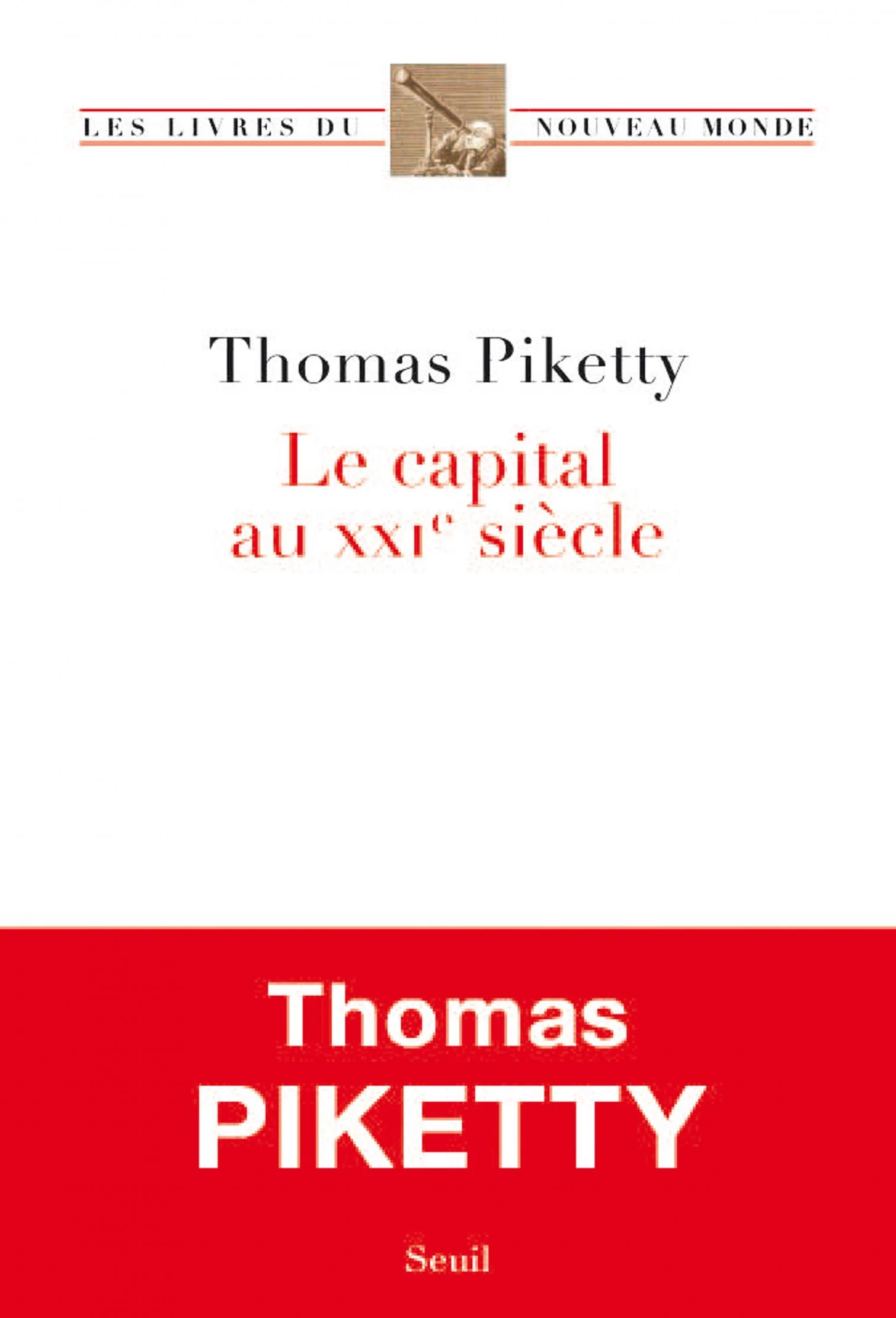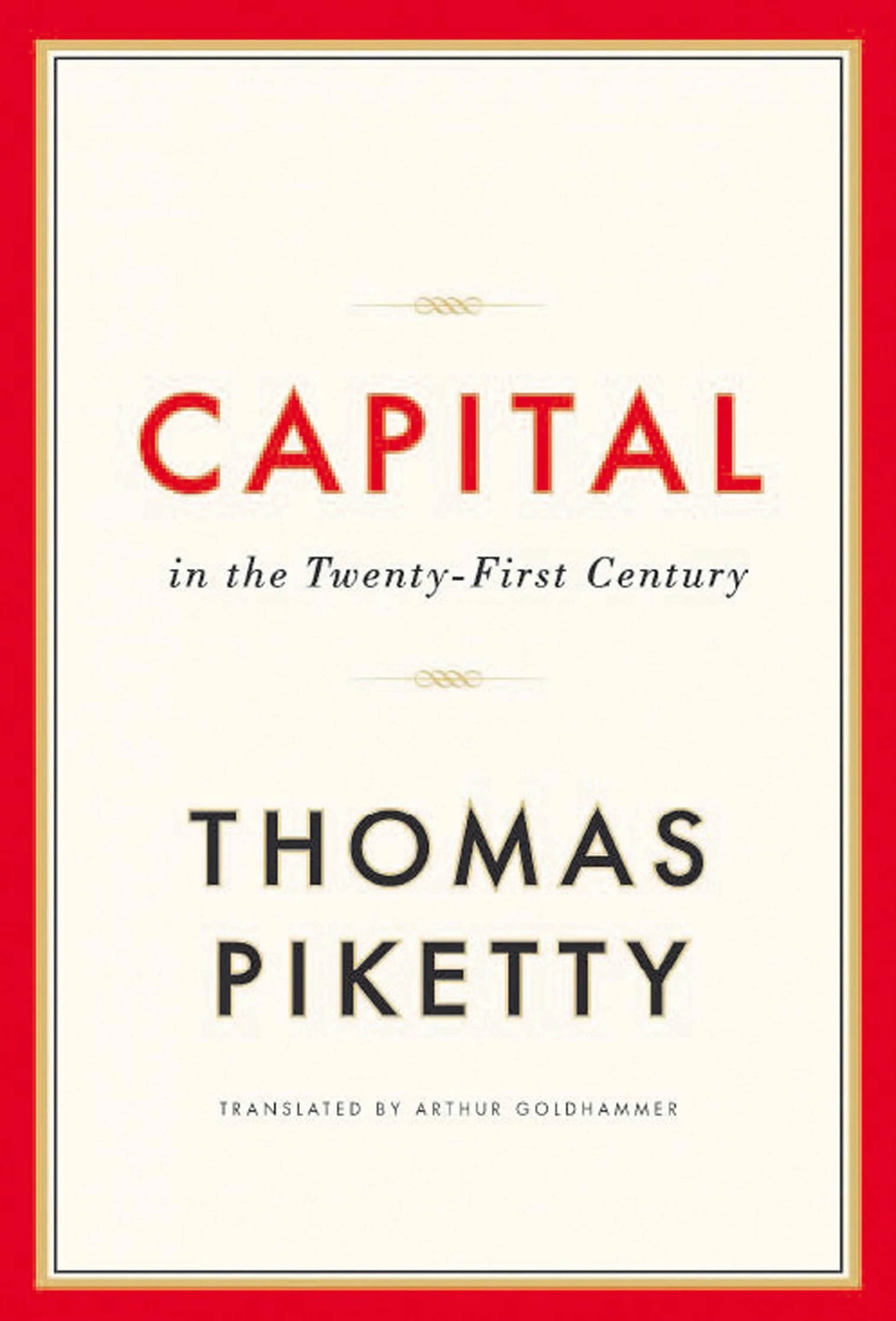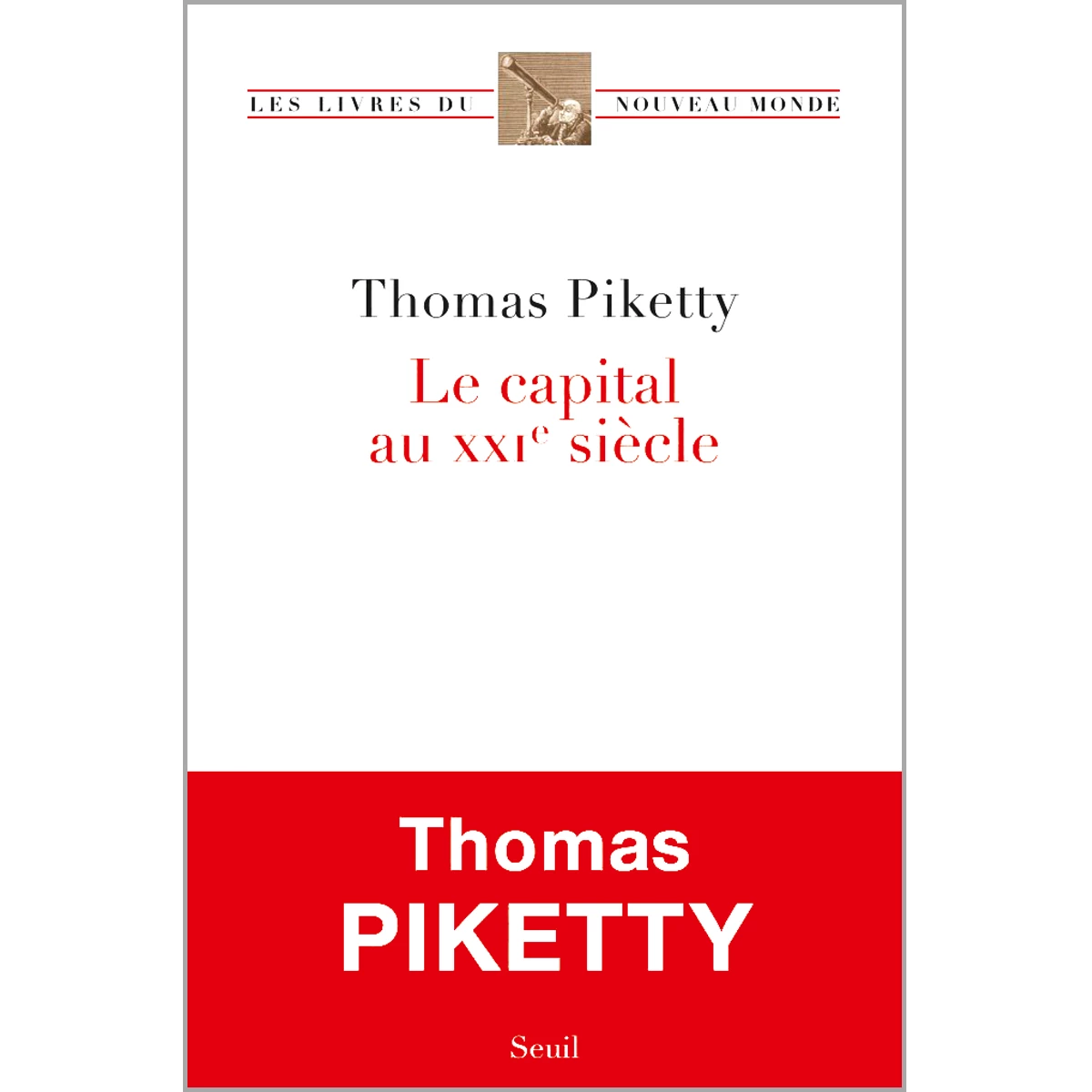The Challenge of Inequality
Thomas Piketty’s ‘Capital in the Twenty-First Century’ highlights inequality in the distribution of wealth, and rekindles the debate the political and economic elites.
Arbitrary inequality puts into question the fundamentals of democracy. This is the angular stone of the colossal work of Thomas Piketty, Le capital au XXIe siècle. Since its publication by Seuil, the book by the French economist has sparked an extraordinary debate on both sides of the Atlantic. Even before the release of Harvard University Press’s English edition, the most influential US and UK media (The New York Times, The Wall Street Journal, The Guardian, The Economist, or The New Yorker) have extensively covered the theses of Piketty, a brilliant researcher on economic equality with close ties to the French socialist party who in 2012 was named by Foreign Policy among the ‘Top 100 Global Thinkers’ on account of his wealth distribution analyses, which gave rise to the motto of the Occupy Wall Street movement: ‘We are the 99%’.
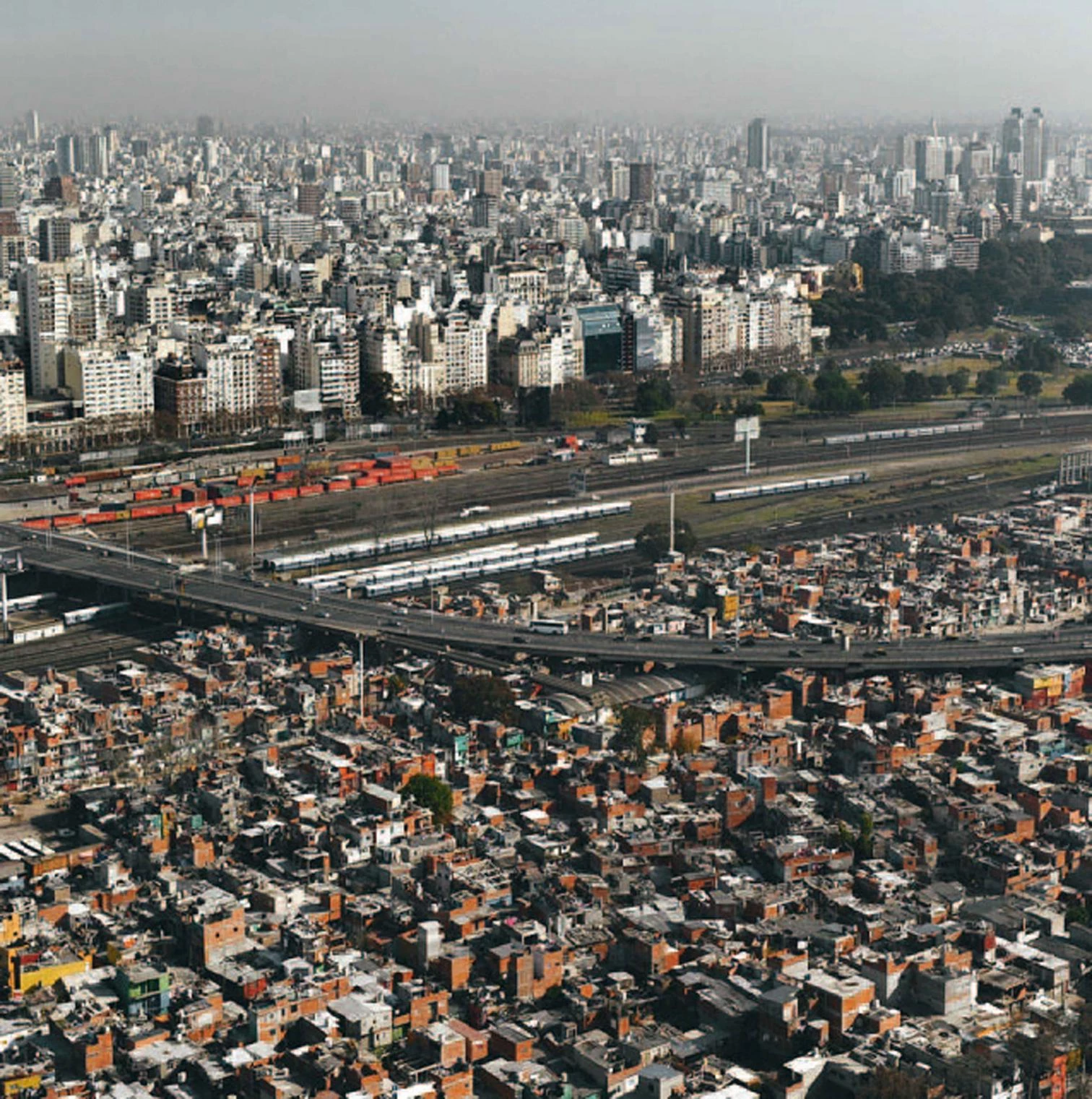
The fractured territory of the contemporary city, from Buenos Aires to Caracas, eloquently expresses the social and economic inequalities denounced by the work of the French economist Thomas Piketty.
In order to make geographical and historical comparisons throwing light on the spatial distribution of inequality and its evolution in time, Piketty often uses the statistical cut of the 1% to make estimates of the percentages of income and wealth that in each country and period is in the hands of this segment of the population, and his conclusions are devastating. Going beyond ideological biases or theoretical speculations, his data series describes an essentially patrimonial capitalism: where growth, competition, and technical progress do not spontaneously lead to economic leveling; where wealth distribution is based on power relationships; and where inheritance, an essential support of privilege, is now close to becoming as important as it was two centuries ago.
A result of fifteen years of research, Piketty’s masterwork explains in plain language the dynamics of the relationship between capital and income, both in old Europe and in the New World; analyzes in detail the structure of inequalities in revenue and heritage; and finally proposes fiscal mechanisms – notably a global tax on capital – to sustain “the social state of the 21st century.” Avoiding economic jargon, the book’s nearly one thousand pages addresses vital issues of our age from a political and historical angle.
Although his tax proposals have been controversial, and his assessment of inequalities among social classes ignores the growing economic leveling between countries, it is hard to sidestep his essential thesis, put forward with an impressive artillery of data, and summarizable through his own words: “Capitalism automatically generates arbitrary and unsustainable inequalities that radically undermine the meritocratic values on which democratic societies are based.” The decrease of inequalities in developed countries from the early 20th century to the 1960s was a product of wars and the public policies brought about by their impact, just like the increase of inequality since the 1970s and 1980s owes much to the political regressions in fiscal and financial matters, for there is no such thing, he assures us, as a natural or spontaneous equalizer.
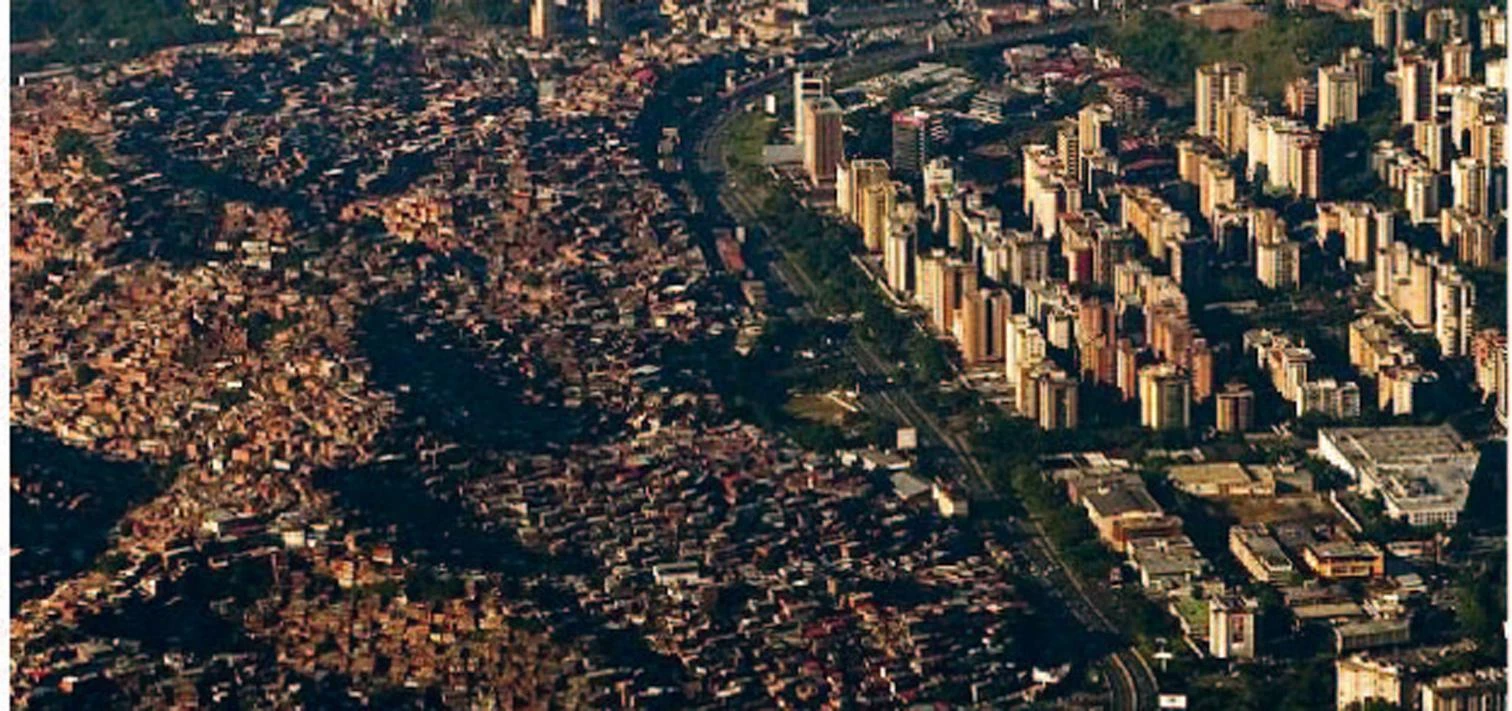
Meticulously and eloquently, Piketty brings down two optimistic beliefs still held by many: that technical rationality has made human capital triumph over financial and real estate capital; and that the extension of the human lifespan has replaced the conventional ‘class war’ with the today much discussed ‘age war.’ He dismisses both as illusory, in line with his assessment of the critical importance of ‘non-human’ capital and its key role in determining inequalities in each age group. In the 19th century, Marx theorized on the stubborn tendency of capital to accumulate in ever fewer hands; in the 20th century and under the influence of egalitarian processes, Simon Kuznets predicted that inequalities would progressively decrease thanks to the combination of economic growth and competition: Piketty, who has extrapolated Kuznets’s graphs to our days and pointed out the regression of egalitarian trends in the last decades, distances himself as much from the infinite accumulation and perpetual divergence implicit in Marx’s apocalytic vision – despite paying tribute to him in the title – as from what he calls the ‘fairy tales’ underlying the mythical ‘Kuznets curve,’ which in the final analysis can indeed be understood to be an ideological product of the Cold War.
Many will judge this book, which against neoliberal orthodoxy advocates a major role for public institutions, to be a product of the jaded French statism that could probably lie in the origins of the Hexagon’s current economic troubles. But in its insistence on placing inequality at the heart of economic analyses, Le capital au XXIe siècle resonates with an extensive and diffuse planetary movement that puts into question the privileges of our political and economic elites. Whether or not one agrees with all its conclusions, the work exposes the economic bases of a social and political malaise that is being felt everywhere, and it does so after rigorous research and in elegant prose. Do read it.
